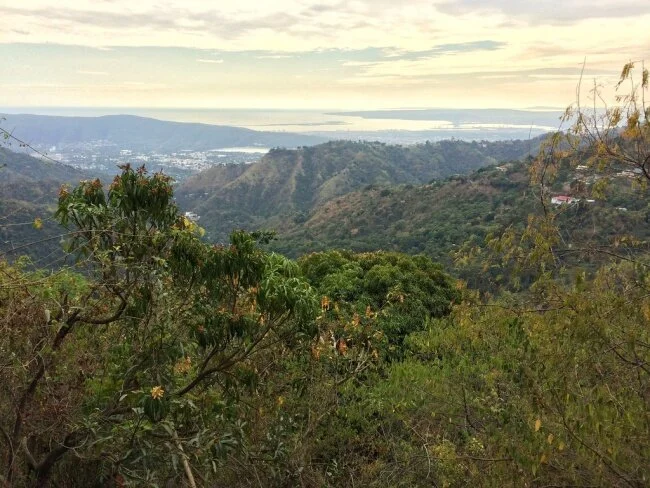My Father's Syria
Growing up in a suburb of Washington, D.C., I knew only bits and pieces of my dad’s life in the years before he became my dad.
I knew that both sides of our family came from an orthodox Jewish community in Syria (we ate delicacies like fried kibbehs, stuffed grape leaves and baba ghanoush, long before these foods hit the mainstream, and men sang Arabic songs at the Passover seder).
I knew that my father’s family had lived in Turkey for a few years when he was little (he once gave me the Turkish answer to a crossword puzzle clue).
I knew that he had lived in Shanghai as a young man (he taught us how to use chopsticks).
But I never knew how these bits came together in a story. For Mike Sutton, oldest son of a Syrian textile merchant, the job of getting to America, obtaining citizenship, finding a wife, starting a business and supporting a family pushed his past to the background.
Then one day several years ago, Dad asked me if I would help him “put [his] story on paper.” That simple, straightforward request set off a multi-year journey of discovery. In our very first interview, I blurted out, “Dad! Do you realize how interesting this is? This is our family treasure.”
My father—modest, soft-spoken, quintessentially pragmatic—had no idea. He was just living his life.
To me, his words were jewels. I heard how he walked to synagogue every morning before high school, a secular French school where Jews, Christians and Muslims took classes together. I learned how the family bought milk every day from the farmer who walked his cow down their street in front of their house in Aleppo on his way to market, and sent out loaves of bread twice a week to be baked in communal ovens.
I learned how Dad traveled by boat with his brother from Port Said to Shanghai in 1941, when Dad was 19 and his brother was 17, when his father sensed anti-Semitism in Syria reaching a threshold, and how he survived alone in Shanghai throughout World War II under Japanese occupation.
The more I learned, the more I needed to know. I researched Aleppo’s amazing, two-thousand-year Jewish history, and dug into my own questions of identity, separateness and belonging.
This little project grew into a book, which found a publisher, who brought it to beautiful completion. Farewell, Aleppo: My Father, My People, and Their Long Journey Home has just been published.
Reaching this goal while my parents are alive and in good health made me excited, relieved and proud. It also made me cry.
Writing, I came to realize, creates a unique sense of intimacy with the book's subject. Years of interviewing and researching, writing and rewriting, brought my father into two distinct roles in my life: family member and creative subject. Bringing the creative project to completion brought me face to face with awareness that my father, 92 years old, will not be with me forever. Beginnings dovetailed with endings. Tears flowed.
I flew to Maryland in July with all these feelings, my husband, our 25-year-old son, and seven or eight review copies that I’d just gotten from my publisher. The night we arrived, I gave my parents a copy. My brother and his family live in the area. My cousin was visiting from Israel with her two little boys. We all met at my aunt and uncle’s house on a Sunday afternoon for pizza and salad. More or less spontaneously, I offered to give a reading.
“Claudy’s going to give a reading!” Aunt Vivian called throughout the house, gathering everyone in the living room. My husband set up a camcorder. My brother turned on the video on his iPhone. “Where should I sit?” Dad asked. “Right there!” I said, pointing to a cushy armchair across the room, an intended seat of honor. He hesitated, and fortunately I snapped to the fact that he wanted to sit next to me, sharing the spotlight with the book and its author. I’d never seen him assume the spotlight in my whole life.
I began by describing how I came to write the book. I read short passages from the first chapters. Aunt Vivi, related by marriage but from the same background, cut in with her own reflections on growing up in a country where we no longer have living relatives. My cousin asked my father how he got by in Shanghai during the war, and how the rest of his family escaped after Syria prohibited Jewish emigration. I sat back, watching my quiet, modest father bask in the validation of being surrounded by family members who were curious about his life.
When I sensed the attention in the room was dissipating, I wrapped up. I don’t think Dad was ready to stop. I exhaled a breath I felt I’d been holding for years.
My father never got back to Aleppo after leaving in 1941. My parents and I were in the process of planning a trip together four years ago, just before the Syrian war broke out. Now, our only realistic chance of experiencing Aleppo together is through this book.
And anyone can come on this journey with us. The only price for passage is curiosity.
“Farewell, Aleppo: My Father, My People, and Their Long Journey Home,” described by Bernard Kalb as “a treasure of a book,” is available from Amazon, BarnesandNoble, your local bookstore and the YourLifeIsATrip.com Trip Shop.







